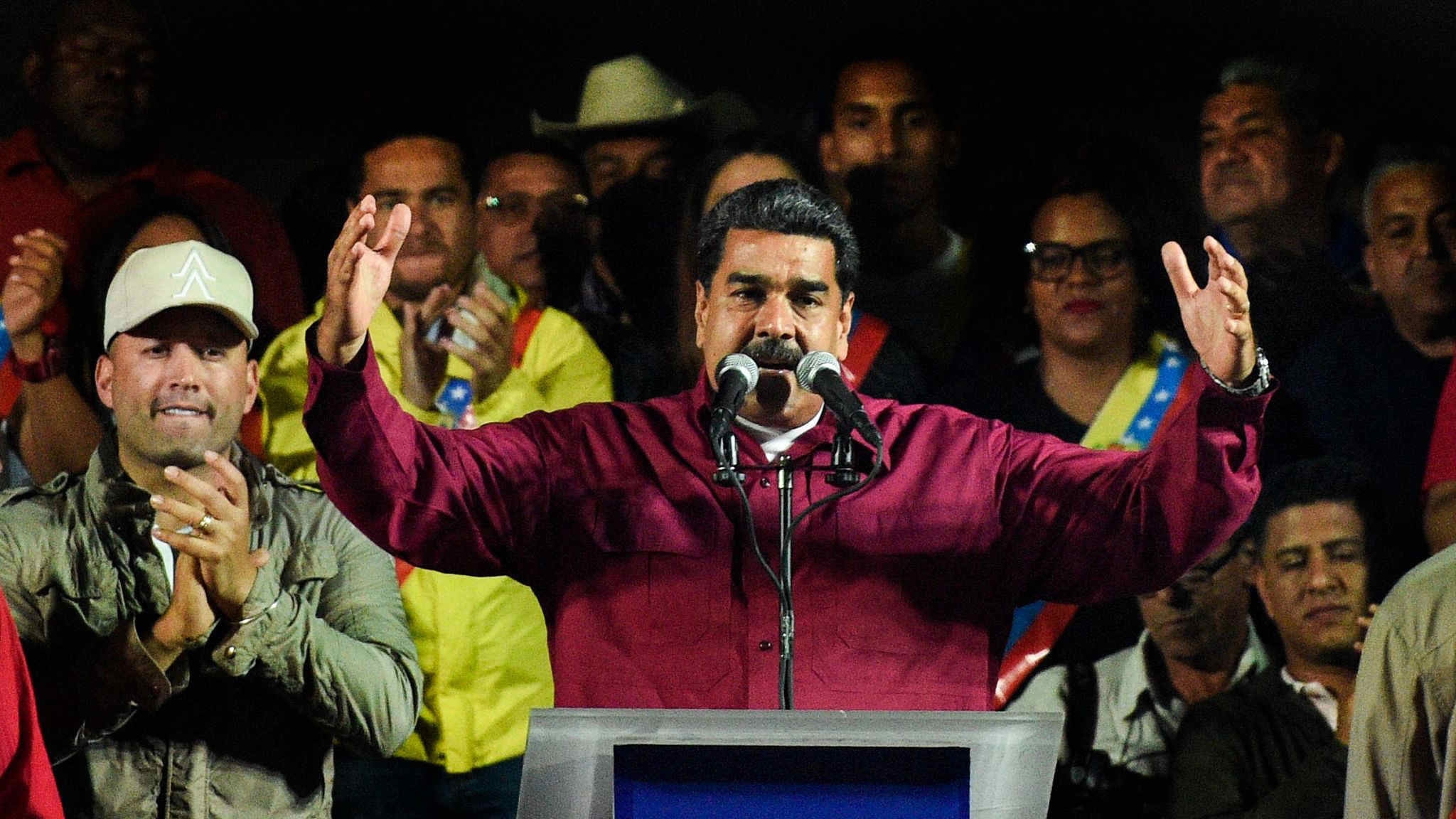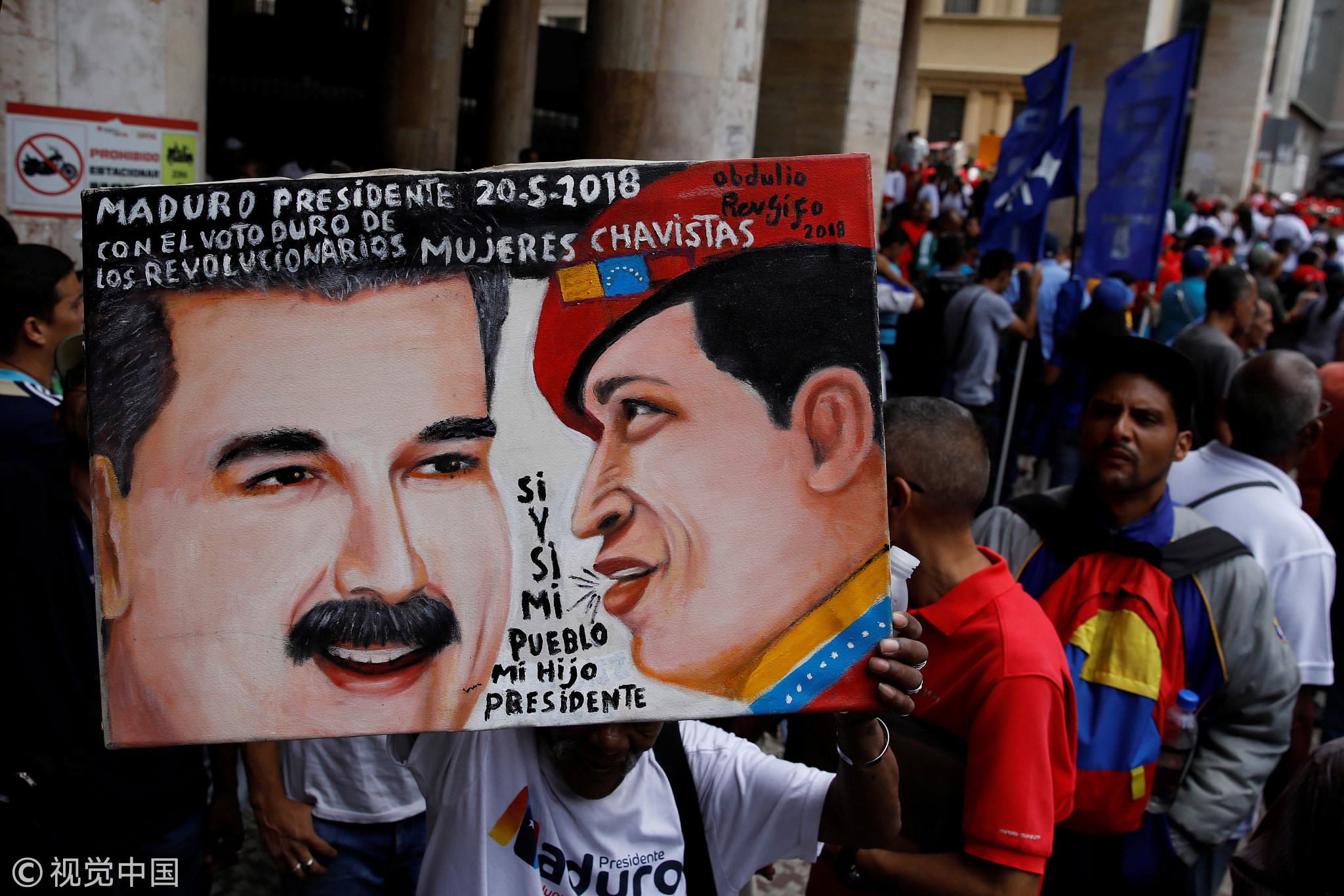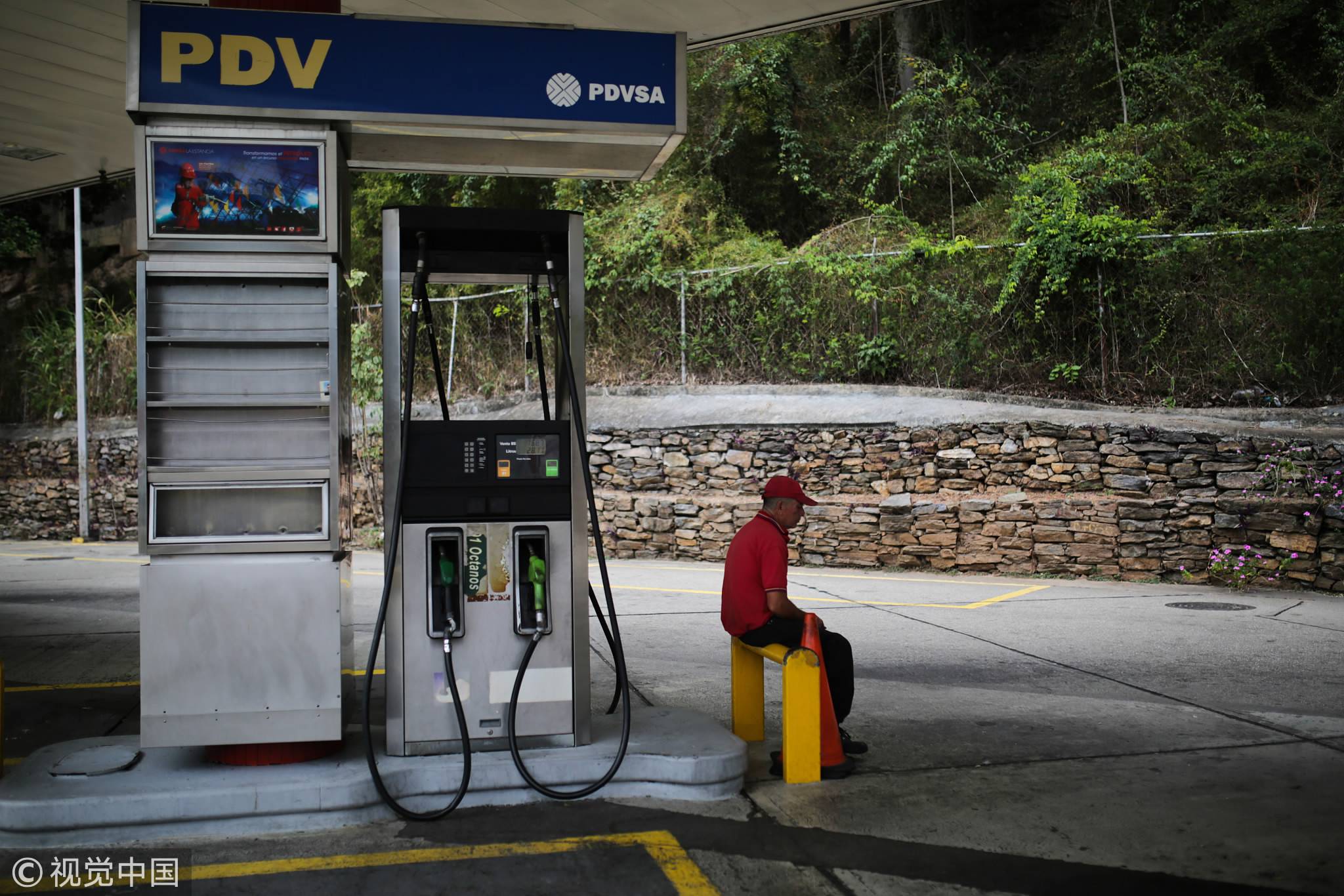
Opinions
17:13, 23-May-2018
The Heat: A still turbulent Venezuela under Maduro?
CGTN
01:37

Editor's note: The article is based on an interview with Gloria La Riva, the coordinator of the Cuba and Venezuela Solidarity Committee, Liz Rebecca Alarcon, a venture manager for Project Pulso, Mariano de Alba, the associate director of the Atlantic Council’s Adrienne Arsht Latin America Center, and Lucas Koerner, a journalist and political analyst for Venezuelaanalysis.com.
Winning nearly 70 percent of the votes, Venezuelan President Nicolas Maduro secured a second term. But the U.S. has called the election a “sham” while opposition candidates said they won’t recognize the result.
In a panel discussion with CGTN's The Heat, Gloria La Riva, the coordinator of the Cuba and Venezuela Solidarity Committee, Liz Rebecca Alarcon, a venture manager for Project Pulso, a digital organization focused on linking Latin Americans in the US, Mariano de Alba, the associate director of the Atlantic Council’s Adrienne Arsht Latin America Center, and Lucas Koerner, a journalist and political analyst for Venezuelaanalysis.com, shared their insights.
De Alba said that the election, which he called as “no election,” did not abide by Venezuelan law in the first place.
“The Venezuelan Constitution and the Venezuela law provides for certain conditions for elections abroad [and the] participation of political parties, the possibility of campaigning in equal terms and so forth, and that’s one that’s not what we saw over the last month in Venezuela,” he said.
“Not even mentioning the fact that according to Venezuela Constitution, the election should be held three months before the next term, and that is in January 2019. And this was held in May for one reason only is that because of the country’s collapsing [economy].”

A supporter holds a painting of Venezuela's re-elected President Nicolas Maduro next to the late Venezuelan President Hugo Chavez outside the National Electoral Council (CNE) in Caracas, Venezuela, May 22, 2018. /VCG Photo
A supporter holds a painting of Venezuela's re-elected President Nicolas Maduro next to the late Venezuelan President Hugo Chavez outside the National Electoral Council (CNE) in Caracas, Venezuela, May 22, 2018. /VCG Photo
La Riva and Koerner both disagreed with De Alba’s assessment. La Riva said that the election was “an astounding victory” as it swept the majority vote.“The opposition has objected to every election that they have lost, which has been 22 out of 24 in the last 20 years,” she said .“The other is that referring to law and the constitution,” La Riva added, “when the right-wing had its say in the 2002 coup, they immediately in their 48 hours of power canceled the Constitution and abolished the Congress; so therefore, who really is for democratic rights.”
As a journalist at the scene covering the election, Koerner said, “We visited electoral centers and throughout Caracas, and we spoke with witnesses for the opposition parties. It’s important to note that in every electoral center that all parties have witnesses observing every step of the process and they reported no irregularities at all. And I think that’s really important to stress amid these cries of fraud.”
In terms of the pressure from US sanctions for its opposition to the election, Koerner said that it has worsened the humanitarian crisis in Venezuela.

An employee sits at a Petroleos de Venezuela SA (PDVSA) gas station in Caracas, Venezuela, on Tuesday, May 22, 2018. /VCG Photo
An employee sits at a Petroleos de Venezuela SA (PDVSA) gas station in Caracas, Venezuela, on Tuesday, May 22, 2018. /VCG Photo
“It’s clear that the offenses restricting the ability of international financial institutions to lend to Venezuela has a real price for the Venezuelan people,” he said. “And you know this includes, for example, the inability to import malaria drugs from Colombia that had to be imported from India, or all kinds of transactions for money earmarked for food and medicine being frozen in the international financial system.”
Looking forward, Alarcon said that the currently depressing economy might even turn into a more severe recession with the unrest following the new election result and other pressures pouring in.
“Venezuela counts with the highest inflation in the world, an increasing economic crisis, humanitarian crisis as we’ve been mentioning and to add on to that,” she said.
“I think that there is going to be a heightened restlessness within the country given yesterday’s results and the action is moving forward by the opposition and there will be increased international pressure whether that be again by the United States or regional actors, etc.,”Alarcon added. “I think that regardless of whatever moves the US takes, those are actions that the US is entitled to do based on US interests, but what we should be focusing on is on the actions of the regional community.”
(The Heat with Anand Naidoo is a 30-minute political talk show on CGTN. It airs weekdays at 7:00 a.m. BJT and 7:00 p.m. Eastern Time in the United States.)

SITEMAP
Copyright © 2018 CGTN. Beijing ICP prepared NO.16065310-3
Copyright © 2018 CGTN. Beijing ICP prepared NO.16065310-3